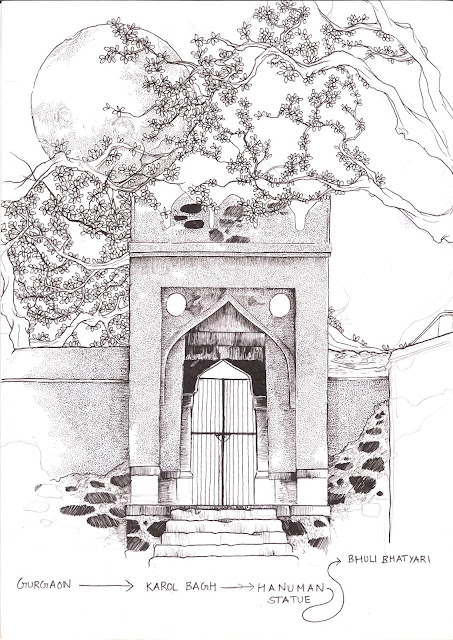SA Site Cover: The Bhuli Bhatyari ka Mahal by Siddhartha Iyer

THE BHULI BHATYARI KA MAHAL An oddly disproportional and red Hanuman stands sternly, ripping his chest open as Delhi wizzes by his feet. Many seem almost oblivious to this grand and grotesque gesture. There is a meeting to get to, a date, an assignment to submit a week after it was due, or in most cases just an air conditioner to find and set up base in front of. Behind the statue, a thin, unassuming road slithers past all the chaos, ending at a place strikingly different from where it began. It ends in the 14 th century, at a now decrepit Tughlaq era hunting lodge. The bhuli bhatyari ka mahal is conveniently tucked away behind the hanuman statue in busy Karol Bagh. It is a spot like so many others in the capital, where the ancient and the modern live cheek and jowl, and hopefully will continue to do so for a long time to come. It faces a large DMNC water tank, where on most occasions, the water turns a rancid green. Every few minutes, the silence around gets in...
